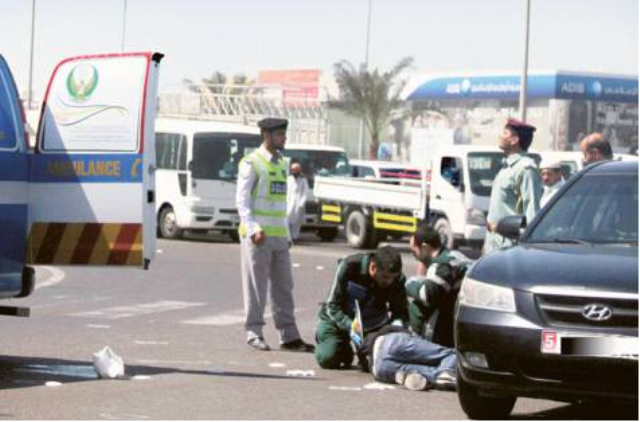Abu Dhabi has one of the world’s highest rates of road deaths. Speeding and reckless driving are the main causes of car accidents in this Emirate.
In an attempt to minimize the traffic accidents and deaths, the Abu Dhabi Police in cooperation with the Department of Transport has implemented rigorous safety rules.
In the following, we list the speeding regulations, as well as main legal requirements for safe driving.
Speeding Regulations
More safety regulations have been introduced in 2011. The main focus is on speed regulations for different road types across Abu Dhabi. Let’s have a look on the speeding regulations for 2011 are as follows:
- Outside Abu Dhabi City, on the Abu Dhabi-Dubai and Abu Dhabi-Al Ain highways: 140km/h with an allowance of 20km/h.
- Entrance of cities (Abu Dhabi, Al Ain and Madinat Zayed): 80 km/h.
- Residential areas: between 20 and 40 km/h.
Speeding Zones
As of 2011, speed-changing zones have been introduced. The speed-changing zones are marked by a red asphalt colour to alert drivers about changes in speed limits. The zones introduced in 2011 and their speed limits are listed below (the limits include an allowance of 20km/h):
| Area | Street | Speed Limit |
| Abu Dhabi | Airport Road | 60 km/h |
| Abu Dhabi Island | Muroor Road | 60 km/h |
| Abu Dhabi City | Corniche | 60 km/h |
| Maqta | Rashed Bin Saeed Street (from Al Maqta Bridge to Al Saada Street) |
60 – 80 km/h* |
| Mussaffah | Al Khaleej Al Arabi Street (from Mussaffah Bridge to Al Saada Street) |
100 km/h |
| Abu Dhabi Island | Al Khaleej Al Arabi Street | 60 km/h |
| Al Khubeirah – Al Bateen | Baynuna Street (from Al Antra Roundabout to the Emirates Palace Roundabout) |
40 – 60 km/h* |
| Al Ain | Om Al Oush Street | 80 km/h |
*depending on road section; please see signs and road zones.
Legal Requirements for Road Safety
The key legal requirements are stated by the traffic rules and regulations of Abu Dhabi Emirate are:
- Speed limitations must be obeyed.
- Children under the age of 10 are not allowed to ride in the front seat of a vehicle.
- Mobile phones are not to be used while driving.
- Intoxicated or drunk driving is strictly prohibited regardless of the amount (prescribed medicines should be checked with a doctor or pharmacist).
- High beam lights are required on roads with no overhead lighting and only to improve the view ahead (no signaling).
- Overtaking in circumstances of reduced view is prohibited.
- Seat belts are required for the driver and front-seat passenger.
Road Safety Monitoring & Penalties
Abu Dhabi Police is implementing rigorous safety regulations to minimise road accidents through traffic points and fine. Police patrol cars monitor the speed limits in residential areas. Highways have movable radars or radar guns to monitor the traffic and capture speeding drivers on camera. There are more than 600 mobile speed cameras that control the speed changing zones and other road sections with speed limitations.



